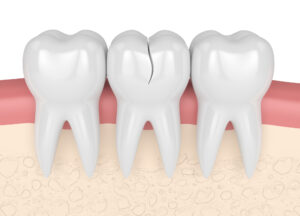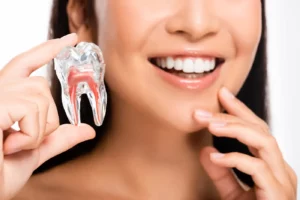Teeth Cleaning - Your Path to Optimal Oral Health
Oral health can affect the health of your entire body. Keep your teeth and gums healthy and your smile looking great by scheduling regular cleanings two times a year as recommended by dentists. Two cleanings a year actively keep up the health of your teeth and mouth and are preventative maintenance for future more expensive tooth issues if you do not regularly do teeth cleaning. The good news is that most regular cleanings are covered by dental insurance plans and if you do not have dental insurance your dentist will provide affordable solutions for your teeth cleanings.
What is included with a regular tooth cleaning?
X-ray:
Tooth xrays are recommended once a year to see if you have cavities, infections, or other oral issues. After the xrays are taken the dentist will review them to make an recommendations or evaluations. Next, it is time for the Hygienist to clean your teeth.
Plaque and Tartar Removal
Plaque, a soft, sticky layer of bacteria, food particles, and saliva, can accumulate on your teeth over time. Tartar (calculus) forms if plaque is not removed, and it can cause gum disease and cavities if left untreated. During your cleaning, our hygienists will carefully scrape away tartar and plaque.
Polishing
After plaque and tartar removal, your teeth are polished to a smooth and gleaming finish. This improves the aesthetics of your smile and makes it harder for microorganisms to stick to your teeth.
Flossing
Thorough flossing ensures that the spaces between your teeth are free from debris and plaque buildup.
Oral Health Guidance
To assist you keep up with your good oral hygiene at home, your dental hygienist will provide you individualized instructions on how to brush and floss properly.
Assessment
The dentist will evaluate your teeth after the cleaning. Based on the results of your dental checkup, our dentist may suggest further procedures or adjustments to improve your oral hygiene.
Is Teeth Cleaning Painful?
In most cases, having your teeth cleaned won’t even hurt. However, some people, particularly those with sensitive gums, may feel sensitivity or discomfort. If you have sensitive teeth, our hygienists will administer anesthetic creams before cleaning them.
Deep Teeth Cleaning
Deep teeth cleaning may be suggested for people with gum disease or significant tartar buildup. In order to preserve gum health and avoid tooth mobility and loss, this thorough treatment involves the removal of tartar both above and below the gumline. Multiple appointments for a thorough cleaning may be necessary, however the use of local anesthetic can help ease any discomfort.
Benefits of Deep Teeth Cleaning
Among the many benefits of a thorough dental cleaning are:
Managing Gum Disease: Regular professional cleanings can treat, halt, or prevent gum inflammation and diseases such gingivitis and periodontitis.
Bad Breath Prevention: It gets rid of the germs that cause bad breath, so your mouth stays fresh and odor-free.
Treatment of Current Infections: Deep cleaning addresses existing infections, ensuring better oral health.
Tartar Removal: It eliminates tartar that builds above and below the gumline, which is inaccessible to ordinary brushing and flossing.
Protection of Tooth Roots: Deep cleaning safeguards the roots of your teeth, preventing gum recession and tooth mobility.
Appointments to get your teeth cleaned on a regular basis, and deep cleanings, when necessary, can do wonders for your dental and general health. At Artistic & Family Dental, we’re here to answer any inquiries or address any concerns you may have regarding regular or deep cleaning your teeth.
Frequently Asked Questions - Teeth Cleaning
How often should I get a teeth cleaning?
Professional dental cleanings are recommended every six months by the American Dental Association. If you have special dental care needs, however, your dentist may advise more frequent cleanings.
Is teeth cleaning painful?
In most cases, brushing your teeth won't hurt. If your gums are particularly sensitive, you may feel pain. Your dental hygienist can use topical anesthetics to make you more comfortable while they clean your teeth.
What is the difference between regular teeth cleaning and deep teeth cleaning?
Plaque and tartar buildup above the gum line must be removed during regular prophylaxis, or professional teeth cleaning. Scaling and root planing, sometimes known as "deep cleaning," removes tartar from below the gum line as well as above it. Patients with gum disease or severe tartar buildup are often advised to do so.
Can teeth cleaning help with bad breath?
The bacteria that cause bad breath can be eliminated with regular dental care. Your breath and mouth can both benefit from regular cleanings.
How long does a teeth cleaning appointment usually take?
Deep teeth cleaning often causes discomfort in the form of sensitive teeth and irritated gums. These symptoms typically fade away within a couple of weeks. Teeth may become even more mobile in advanced stages of gum disease.
Are there any side effects of deep teeth cleaning?
Deep teeth cleaning often causes discomfort in the form of sensitive teeth and irritated gums. These symptoms typically fade away within a couple of weeks. Teeth may become even more mobile in advanced stages of gum disease.
Feel free to call Artistic & Family Dental with any more inquiries you may have about teeth cleaning, or if you would like to make an appointment. We’re here to help you find your way and give you the best dental care possible.
Personalized and high quality orthodontic care that you deserve

Latest Blogs

Restore a Tooth’s Function with Crowns or Bridges
When you have lost a tooth or when it is severely damaged, it is important to restore its function as soon as possible. One way

Cracked Tooth and Broken Teeth Treatment in Denver CO
If you are experiencing pain from a cracked tooth, don’t delay in seeking a broken teeth treatment in Denver, CO. See a dentist as soon

What Are Dental Veneers?
Dental veneers are a type of dental restoration that covers the tooth’s front surface to improve its appearance. Veneers can be made from diverse materials,

Beautiful Smile: How Professional Teeth Whitening Treatments Work
Did you know that tooth whitening is one of the most popular cosmetic dental procedures performed today? In fact, according to the American Academy of
Schedule your appointment now
Contact Us
Please contact us with any questions that you may have and a staff member will get back to you shortly.
- Monday:
- 8:00am-4:00pm
- Tuesday:
- 8:00am-4:00pm
- Wednesday:
- 8:00am-4:00pm
- Thursday:
- 8:00am-4:00pm
- Friday:
- 8:00am-4:00pm
- Saturday:
- By Appointment
- Sunday:
- CLOSED
Areas and Zip Codes We Serve
- Hampden
- Hampden Heights
- Hampden South
- Southmoor Park
- Goldsmith
- Virgina Village
- Kennedy
80210 80014 80111 80113 80121 80224
- Get on I-25 S from Champa St and W Colfax Ave(1.9 mi)
- Follow I-25 S to CO-30 E/E Hampden Ave. Take exit 201 from I-25 S (8.4 mi)
- Continue on CO-30 E/E Hampden Ave to your destination (0.9 mi) Artistic & Family Dental 3540 S Poplar St #301, Denver, CO 80237
- Get on I-25 N(2.6 mi)
- Follow I-25 N to CO-30 E/E Hampden Ave in Denver. Take exit 201 from I-25 N (8.6 mi)
- Continue on CO-30 E/E Hampden Ave to your destination (0.7 mi) Artistic & Family Dental 3540 S Poplar St #301, Denver, CO 80237











